Those who suffer serious, perhaps life changing, harms from gambling addiction may wonder if they can ever get a grip on their habit or if their addiction will control the rest of their lives. Given the multiple harms someone can experience from gambling disorder, it’s clear why someone would want to seek treatment. But who is there to talk to? What kind of treatment is available for a person engaged in what might be called addictive or compulsive gambling? What type of treatment is most effective?
Keep reading this article for the answers to these questions and more.
How to Treat Compulsive Gambling
The American Psychiatric Association officially recognized gambling as an addiction in the 5th edition of the Diagnostic and Statistical Manual of Mental Disorders (DSM) in 2013.
But can a gambling addiction be treated? Yes! Gambling addiction can be treated through a variety of methods tailored to individual needs.
Cognitive Behavioral Therapy (CBT) is widely recognized as one of the most effective treatments for gambling recovery. CBT helps individuals identify and alter the thought patterns and behaviors that contribute to their gambling issues. It addresses the underlying psychological aspects of gambling addiction and equips individuals with coping strategies to manage urges and maintain recovery. Research and clinical studies support its efficacy in reducing gambling behavior and improving overall well-being.
It’s essential to include mental health treatment as part of the comprehensive care for compulsive gambling in order to address the different facets of gambling addiction.
Support groups like Gamblers Anonymous provide a supportive community where individuals can share their lived experiences and gain encouragement from others who may have been in a similar situation.
Self-help strategies, such as setting workbooks, financial management strategies, and finding alternative activities, are also beneficial, particularly if it brings social support from family in the treatment process. With the right approach and close, trustworthy people who care, many individuals can achieve and maintain recovery from gambling addiction.
If you know that you or a loved one experience any of these gambling related harms, we highly recommend therapy. The evidence is clear that literature-backed therapy developed for gambling-specific problems works!
Why Treatment for a Gambling Addiction Matters
Do you feel like you gamble more than you should? You’re not alone. Identifying a gambling problem and seeking help is crucial. Many who gamble compulsively have suffered life altering consequences.
Some gambling harms include:
Financial Harm
You may notice yourself thinking the following:
- I spent more than I should on gambling; I’m worried that I won’t be able to pay the bills.
- I’m worried about losing my loved ones when I tell them about my gambling debt.
Financial damage caused by gambling can be devastating, leading to what may become overwhelming debt, bankruptcy, and inability to meet your obligations to
yourself or your family. This harm often extends to cutting back on necessities and essential bills, compounding stress and anxiety.
By seeking treatment, individuals can regain control of their finances and prevent further damage.
Mental and Physical Health Impairment
You may notice yourself thinking the following:
- It’s become harder to sleep at night because I’m worried about money lost gambling.
- As my gambling has increased, I have isolated and no longer enjoy life the way I used to.
Gambling can take a serious toll on psychological health, exacerbating conditions like depression, anxiety, and substance abuse, leading to increased severity of health consequences. Furthermore, psychological symptoms may also contribute to physical symptoms like insomnia and headaches. This distress and cognitive impairment can significantly diminish one’s quality of life, fostering feelings of shame and hopelessness.
Treatment offers tools and strategies to alleviate these burdens and improve overall well-being.
Distress and Conflict in Interpersonal Relationships
You may notice yourself thinking the following:
- I could lose my whole family if I continue gambling.
- I spend more time gambling than I do with my family, which hurts all of us.
- I’m worried if my partner finds out about my gambling they will leave me.
The impact on relationships cannot be understated, as gambling can harm not just the individual, but approximately six other people—often those closest to them. Deceit and financial distress contribute to discord in interpersonal relationships, eroding trust and sometimes leading to damage.
Seeking treatment is a crucial step toward rebuilding trust and repairing these fractured relationships, no matter how challenging it may seem.
Legal Issues
You may find yourself saying the following:
- It’s not stealing if I pay it back. Once I get ahead I will repay it. It’s really a loan.
- Taking this money is not going to hurt a person. It’s owed to me anyway.
Individuals grappling with gambling concerns often feel stuck in a cycle of desperation that may lead them to participate in illegal activities to fund their gambling. Risk factors such as low income, unemployment, and the increase in the availability of gambling opportunities can contribute to the desperation that leads to illegal activities. The shame and guilt can be overwhelming, especially when their actions result in legal troubles (e.g., theft, fraud, shoplifting). In these moments, it’s crucial to offer empathy and support, understanding that their actions stem from gambling disorder rather than malicious intent.
Seeking treatment offers hope, and strategies to overcome the addiction. Further, treatment offers a supportive environment where individuals can understand the underlying factors contributing to their behavior while regaining control of their life and gambling behavior.

Treatment Centers for Gambling Disorder
The reasons to seek treatment for compulsive gambling are clear, but where can you find treatment? It’s easier than you think! And there are several options to choose from.
The Gambling Clinic®: Gambling Addiction Treatment in Tennessee
The Gambling Clinic® is an outpatient treatment center in Tennessee that helps individuals regain control over their lives. At The Gambling Clinic® (TGC®), we understand the complexities of gambling disorder and other gambling concerns. Our approach is grounded in empathy and evidence-based care.
We offer one-on-one cognitive behavioral therapy tailored to an individual’s needs, whether their goal is to no longer gamble (i.e., abstinence) or to reduce their gambling involvement and gain harm reduction skills (i.e., moderation). In addition, our peer support element of the treatment connects you with others who understand firsthand the challenges of overcoming problem gambling behavior.
We recognize that taking the first step can be intimidating. For this reason, we offer an anonymous online test to help evaluate their gambling behavior. Our goal is to provide accessible and engaging educational resources that assist individuals in understanding their gambling behavior.
Additionally, TGC® offers free and confidential phone consultations, further extending our support to those who may be struggling with problem gambling behavior and their loved ones. Whether an individual is seeking guidance for themselves or a loved one, we’re here to support them.
Call 833-TGC-TN00 or email us at tgc@memphis.edu.

National Council on Problem Gambling (NCPG)
Finding the right support and resources can feel overwhelming, especially when it comes to addressing problem gambling behavior. The NCPG (National Council on Problem Gambling) website includes state-by-state information about how to find programs for individuals with problem gambling behavior, treatment facilities, screening tools, and information about responsible gambling for both individuals who gamble and gambling providers.
The NCPG also offers a 24-hour toll-free and confidential National Problem Gambling Helpline Network. The helpline offers guidance and resources to support individuals on their journey to recovery. Further, helpline and ways to talk on the phone, chat or text.
- Call: 1-800-GAMBLER (1-800-426-2537)
- Text: 800GAM • Chat: www.1800gamblerchat.org
Gamblers Anonymous
Gamblers Anonymous (GA, or Gam-Anon) provides a 12-step recovery program, modeled after Alcoholics Anonymous, which offers a structured framework for healing and growth. GA values community and peer support in the journey to recovery. There are no fees or costs to participate; the only requirement for membership is “the desire to stop gambling.”
GamTalk
GamTalk assists individuals experiencing problem gambling behavior, while offering a 24/7 online peer support program. The 24/7 system allows individuals who are urgently experiencing distress due to problem gambling behavior to have an available individual to communicate with regardless of the time.

Types of Therapy and Counseling for Gambling Disorders
Several types of therapy and counseling for compulsive gambling exist. Often, a multi-faceted approach with the right treatments proves very effective for individuals on their journey to reduce gambling harms.
Here, we’ll explore:
- Cognitive Behavioral Therapy (CBT)
- Psychodynamic Therapy
- Group Therapy
- Family Therapy
- Hypnosis
While we will discuss each of these methods for gambling addiction treatment, note that only CBT has been proven to be an effective form of treatment. Based on treatment conducted by The Gambling Clinic®, 87+% of individuals who use CBT succeed at reducing their gambling harms and improving their mental and physical health.
Cognitive Behavioral Therapy and Gambling Addiction
Cognitive-Behavioral Therapy (CBT) is a widely used treatment approach for individuals with concerns about their gambling. In general, CBT helps individuals change the way they think about gambling and implement alternative behaviors to gambling. This treatment also helps empower individuals with the belief that they can regain control of their gambling behavior.
CBT is tailored to every individual. With the help of the therapist, individuals provide a comprehensive history of their gambling. This process involves exploring personal, emotional, financial, and environmental factors that might influence gambling behavior and helps identify the specific situations that cause gambling problems.
During CBT, the therapist will work with individuals to develop specific coping strategies to the situations that cause gambling problems.
Therapists understand that high-risk situations may occur throughout CBT; however, relapse prevention helps address these potential triggers with compassion and understanding. Relapse prevention strategies aim to help individuals maintain progress and long-term recovery. Moreover, all these factors are significant in overcoming problem gambling behavior and improving quality of life.
Though tailored to each individual, the typical overarching structure of Cognitive Behavioral Therapy for gambling addiction as as follows:
Setting the Stage for Change (Building Self-efficacy)
Setting the stage for change builds self-efficacy while fostering hope and belief in one’s ability to overcome the challenges of problem gambling behavior. Therapists provide support by building a supportive environment that empowers the client to overcome obstacles while recognizing and celebrating their client’s progress along the journey of recovery.
Identifying Triggers and Consequences
The therapist approaches trigger and consequence identification with empathy by creating a non-judgmental environment for the individual to explore their triggers and the consequences of their gambling behavior. The therapist demonstrates empathy by active listening and validating the client’s experience while helping them through the identification process. Triggers can include stress, boredom, loneliness, certain environments, etc. Additionally, the therapist helps the client examine their gambling behavior by identifying short-term and long-term consequences.
Understanding Cognitive Distortions and Urges
Cognitive distortions and urges may be a significant barrier and difficult challenge to overcome. Therefore, the therapist works collaboratively with the individual to explore the individual’s beliefs and thoughts about gambling, which are known as cognitive distortions. An individual may notice themselves thinking “I can win back my losses” or ” This machine is hot right now, I have to keep playing.” Individuals learn to challenge and reframe cognitive distortions. Additionally, individuals may experience an urge to gamble, and the therapist may explore this situation with the client to help identify ways to help reduce these feelings. Therapists may further build the individual’s self-efficacy to empower them to overcome these thoughts and urges.
Coping Strategies
The therapist recognizes the difficulty of changing and offers encouragement and support as the individual learns new skills. By demonstrating empathy, the therapist helps the individual feel understood and supported, which can increase their motivation to implement these coping strategies. Individuals will learn healthy coping strategies to handle triggers, cognitive distortions, and urges to assist individuals in sticking to their goal of change. This may involve learning relaxation techniques, problem-solving skills, or identifying other options in their life besides gambling.
Relapse Prevention
The therapist acknowledges the challenges of recovery and helps the individual develop resilience and motivation to continue their journey towards recovery. CBT helps individuals with skills to prevent relapse and manage setbacks effectively.
Further, therapists help their clients understand potential future events that may trigger problem gambling behavior. Overall, CBT typically involves ongoing support and maintenance to reinforce positive changes and prevent relapse over the long term. This may include individual therapy sessions (e.g., follow-ups), support groups, or peer recovery specialists.
How Effective is CBT for Disordered Gambling?
CBT gives hope for individuals with gambling concerns. Studies show that out of all individuals who attend a CBT program, 60-70% of individuals experience significant relief from their symptoms through this therapy.
Additionally, studies show that an individual who receives CBT is more successful in reducing problem gambling behavior and related problems than an individual who does not seek treatment or placebo interventions. Moreover, The Gambling Clinic® shows an 87+% success rate among individuals who receive CBT treatment for problem gambling behavior through our program.
CBT for problem gambling behavior is effective due to the underlying values of the treatment. In CBT, therapists work collaboratively with individuals on their journey to build self-efficacy and help individuals regain agency in their lives. Further, therapists instill hope and provide an environment where individuals feel understood and supported. Together, they explore the thoughts and behaviors that contribute to problem gambling behavior, and challenge distorted beliefs, and urges with empathy and compassion to develop a path to recovery.
What Evidence Is There?
The evidence for the effectiveness of CBT is based on randomized clinical trials. Since the 1990s, about 25 randomized clinical trials have tested the effect of CBT for gambling concerns. The results of these trials show that individuals who attend CBT will significantly reduce the number of times they gamble, the amount of money they gamble, and the severity of their gambling concerns. Importantly, individuals attend CBT show significantly better outcomes than individuals who did not attend any treatment program.
Psychodynamic Therapy
There is very little research on the effectiveness of psychodynamic therapy for gambling disorder. In psychodynamic therapy, therapists explore the subconscious reasons that people gamble. There is a strong emphasis on how past experiences, and especially relationships with people, can lead to gambling problems.
Psychodynamic therapy often involves therapists interpreting individuals’ past experiences and exploring topics that individuals want to avoid.
Group Therapy
Group therapy is an effective form of treatment for gambling disorder when based on CBT. In a group setting, individuals help each other identify specific situations that lead them to gamble and generate alternative ways of thinking and living their lives. The group structure is similar to Gamblers Anonymous (GA) that values community and peer support in the journey to recovery. However, GA is a 12-step recovery program, modeled after Alcoholics Anonymous, that may not necessarily incorporate CBT principles.
Family Therapy
Given that discord in interpersonal relationships is a common experience among individuals who are experiencing gambling concerns, family members are often involved in an individuals’ treatment. Family members can be involved either as needed for an individual treatment program or be involved from the onset of treatment as part of a couples or group therapy program.
Therapists can offer both family members and the individual a safe place to discuss difficult interpersonal issues. For example, family members might feel betrayed and hurt by their loved ones actions, and the individuals may express feeling not supported or understood.
Research shows that involvement of a family member in treatment can significantly improve the number of sessions attended and enhance the overall effectiveness of treatment.
Hypnosis
Hypnosis is used to help a person relax deeply and connect the urge to gamble or the image of gambling to something inconsistent with gambling behaviors. This therapy utilizes a state of deep relaxation and heightened focus. Therapists may help individuals reframe their attitudes towards gambling, resist urges, and develop coping mechanisms. However, research on the effectiveness of hypnotherapy for gambling disorder is limited.
How to Stop Gambling Addiction
The evidence that gambling disorder can be treated, and should be treated, is abundant. So how can you begin your treatment journey?
First, acknowledge the problem and seek help. Professional support is often necessary, with options including Cognitive Behavioral Therapy (CBT), which addresses the underlying thoughts and behaviors. Other forms of counseling include joining support groups like Gamblers Anonymous, which provide a community of individuals facing similar challenges. Family and friends can also play a supportive role.
Practical steps include setting strict financial limits, avoiding gambling triggers, and engaging in alternative activities and hobbies that can help fill the time previously spent gambling.
Consistent effort and a strong support system are key to overcoming gambling addiction. Change is possible, and we at The Gambling Clinic are here to help.
References
- Fong T. W. (2005). Types of psychotherapy for pathological gamblers. Psychiatry (Edgmont (Pa. : Township)), 2(5), 32–39.
- Ribeiro, E. O., Afonso, N. H., & Morgado, P. (2021). Non-pharmacological treatment of gambling disorder: a systematic review of randomized controlled trials. BMC psychiatry, 21(1), 105. https://doi.org/10.1186/s12888-021-03097-2






